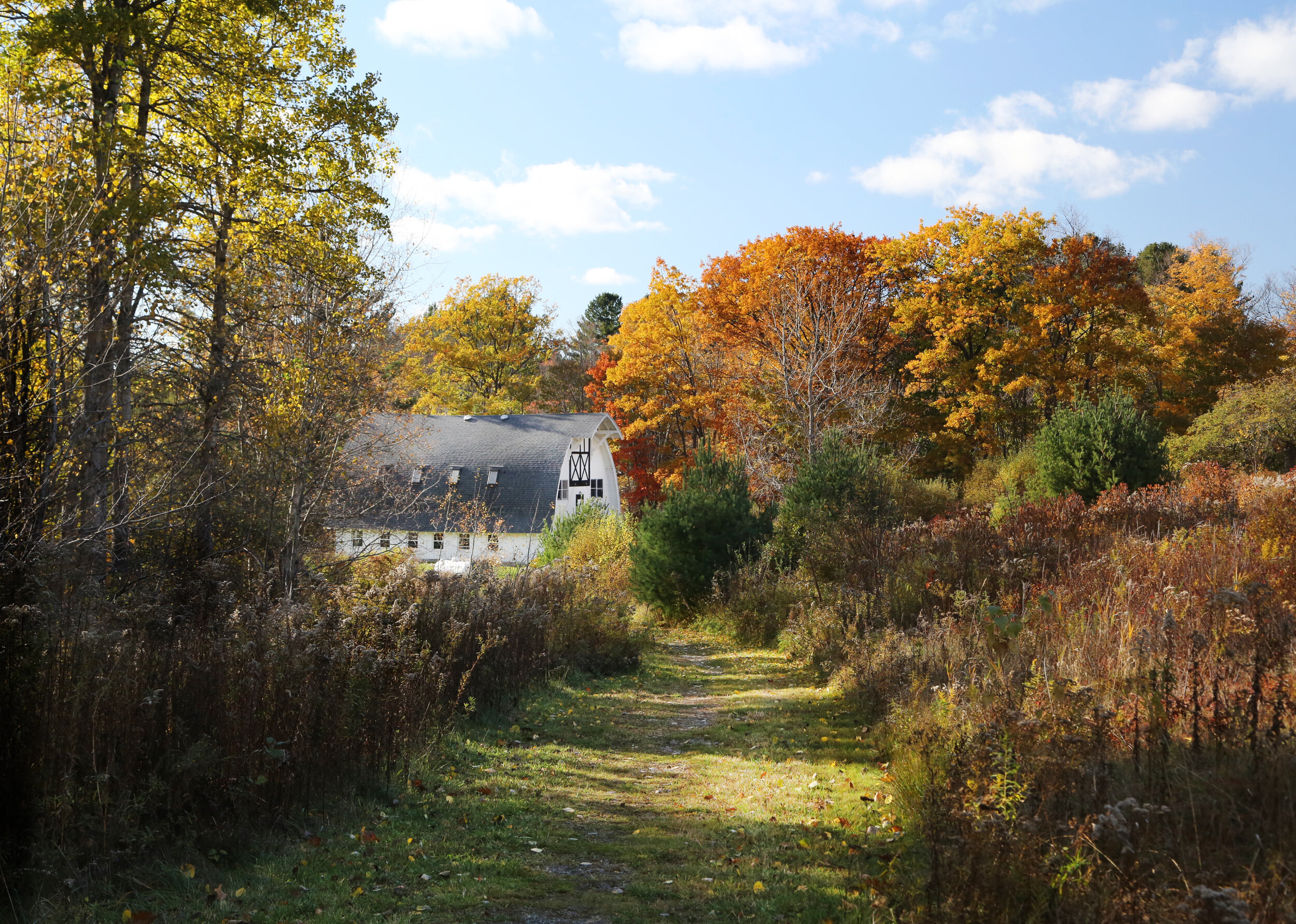Reading Lists
10 Tips For Applying to Writing Residencies
I learned a lot from reviewing applications for a residency I once attended

Like a lot of writers tackling a book project, I’ve applied to a few residencies with mixed success. But it was only this year, when I reviewed applications for a residency that I had previously attended that I really started to see what makes some applications fail and others really succeed.
Most of the factors that decide a person’s acceptance are settled before they write their application— namely, the quality of the work, its alignment with the mission of the residency, and their personal qualifications as a writer. But a weak application can get a very established writer passed over with little more than a second thought, while a strong one can send an emerging writer to the top of the short list. So what can you do to put your application in contention?
1. Be specific about what you plan to do.
We know you’re working on something big. Maybe it’s not a book, but it’s still something hefty, like a series of essays, articles, or poems. Whatever the project, if it’s big enough to benefit from time at a residency, it’s almost certainly too big to do the bulk of the work during your time there. If only for that reason, it’s best to avoid limiting your statement of purpose to something general like “I plan to work on my book.” Say something more specific like, “I plan to finish chapters seven and eight of my book,” or “I plan to complete a revision of my book, with a focus on dialogue.”
All of us reviewers are alumni and staff of the residency, so we’re quite familiar with the place and the community that’s formed around it. One of the questions on the tops of our minds is how you might fit into it. Often, when discussing applications, I found myself and my fellow reviewers saying things like “I could imagine this person there.” When we could see the person working, that was a good sign for the applicant. Telling us, specifically, what you plan to work on helps us get there.
2. Lean into your work over your resume.
As a reviewer, I was more interested in the projects the applicants planned to work on.
A residency might be a career milestone, but it’s not a job. Your professional achievements until then give us a sense of who you are. But as a reviewer, I was more interested in the projects the applicants planned to work on. Often, my co-reviewers and I encountered people with impressive careers but who shared very little about their projects. I couldn’t tell if they had just chosen to say very little about their project, or if they hadn’t worked on it enough to know themselves what it was really about. Often, those applications left me wanting to know more about the applicant’s project, but, lacking a real sense of it, I was reluctant to voice my support. Talk about your work and why a residency is a place for it and not just a place for you.
3. Choose a sample that relates to your chosen project.
Residencies will often ask you to send your best work as a work sample. Absent more specific guidance, I recommend you pick something related to the project you plan to work on while you’re there. A residency is generally neither a time to start a new project nor a time to finish one. It’s a time to work through the long middle of a project, or, often, through one of its junctures, when research turns to writing, or writing turns to revision. As tempting as it is to send something that’s finished for you, it can be just as— if not more— beneficial to send something that isn’t, along with a note in the accompanying essays explaining where the project stands and how you plan to move it forward. What questions remain unanswered for you? What problems are you still trying to work out? If those mysteries still interest you, there’s a good chance they’ll interest us, as well.
4. Be honest and show a range of emotions.
You care about your work, you’re excited about the chance to dedicate yourself to it. Maybe you’re also stressed by the day-to-day of life, but you’re also feeling a sense of resolve as you plan to work on it more. Even for professionals, creative endeavors into your life can be messy and emotionally complicated, but being honest about that can make you relatable. One applicant told us she had been working on the book while taking care of her parents. She had managed to make a lot of progress over the last few years, but finding the spare moments had been difficult lately. Still, she said, she needed to see this book through to the end. A residency made sense to her, and it made sense to us, as well. A residency can be a humbling experience: other people have read your work, thought about it seriously, and cast a vote of confidence in you and your project. When applying, it can help to show humility and not just confidence.
Residencies want to know that you see their special qualities and that you want to take part in them yourself.
5. Say why now, in particular. It’s always a good time to write in a beautiful setting. But when you’ve been working on a single project for years and you feel stuck and need to rejuvenate your spirit, or you find yourself on the precipice of a creative outpouring, it’s a very good time. If that sounds like you, say so in your application. Even a short residency can be a life-changing experience, a moment when your project finds new life. Show us that you and your project are ready to meet the moment.
6. Explain why you want to go to this residency, in particular. Every residency is a chance to step away from your daily business and work on something you care deeply about, so what (other than an impending deadline) drew you to this one? A few of the applicants I encountered this cycle told us their project was set in a landscape similar to the area surrounding our residency. For them, the “Why here?” question had an obvious answer. Not every place you’ll apply to will be so perfectly aligned with your work. Even so, residencies want to know that you see their special qualities and that you want to take part in them yourself.
7. Embrace the communal side of the experience.
A residency isn’t just a nice desk with a view. For a little while, it’s also a place to live— typically in a community of other writers and artists. While you’ll spend most of the allotted time working alone, for the rest of the time, you’ll be with other people, cooking, eating, going for walks, talking about your work.
Don’t assume a selection committee will assess your writing via your work sample alone.
The community spirit can extend beyond your time on site. Residencies often form communities of alumni— people brought together not just because they spent some time in the same place, but because they’ve all elected to make their own uphill journey through a big creative endeavor. The social side of a residency isn’t a burden. It’s a perk, and residencies want you to think of it that way. At the very least, they want people who will take their role as a temporary member of a household seriously, and not leave their dishes in a pile in the sink. For an application, a residency might ask you to write a little bit about your experiences with communal living, but even if it doesn’t, it’s good to signal that you don’t mind living and working alongside other people. One (subtle) way to do that?
8. Consider your application essays another writing sample.
While your work sample might be the single most important part of your application, bad essays can overshadow it. When a statement of purpose or an autobiographical statement falls way below the allotted word count but leaves a lot of questions unaddressed, or it just feels a little rushed, it makes us wonder why. It’s normal to dislike writing about yourself, but good writing can happen anywhere, including in an essay you’re reluctant to write at all. Don’t assume a selection committee will assess your writing via your work sample alone. If your essays are well written, that counts for your application. If they’re not well written, or not even thoughtfully written, that counts, also. Treat this portion like any other writing assignment that matters to you. Give yourself time, take it seriously, and proofread it a couple times before sending it.
9. Follow the rules.
This one sounds obvious, but reading applications, I was surprised how often it came up. Applications are a limited way to get to know a person, so admissions committees consider not just what a person wrote, but how they wrote it. When a residency gives applicants 2,000 words for a statement of purpose and they turn in twice that many, that’s not a good sign. Maybe they refashioned an application for another residency without considering the requirements for ours. Or, maybe they saw the rules, but think they’re too important to have to abide by them. That’s not good, either. Following the rules won’t win you a lot of points with the selection committee, but ditching them entirely can make for a really bad first impression.
10. Keep applying.
We passed on many, many qualified applications this year. Small details make the difference, so keep writing, and keep applying. As you write more and your writing improves, your work samples will as well, and as you apply to more residencies, you’ll get a better sense of how to present yourself to each of them. If you don’t get in anywhere, sign up for their newsletters, mark their deadlines in your calendar, and keep trying!








